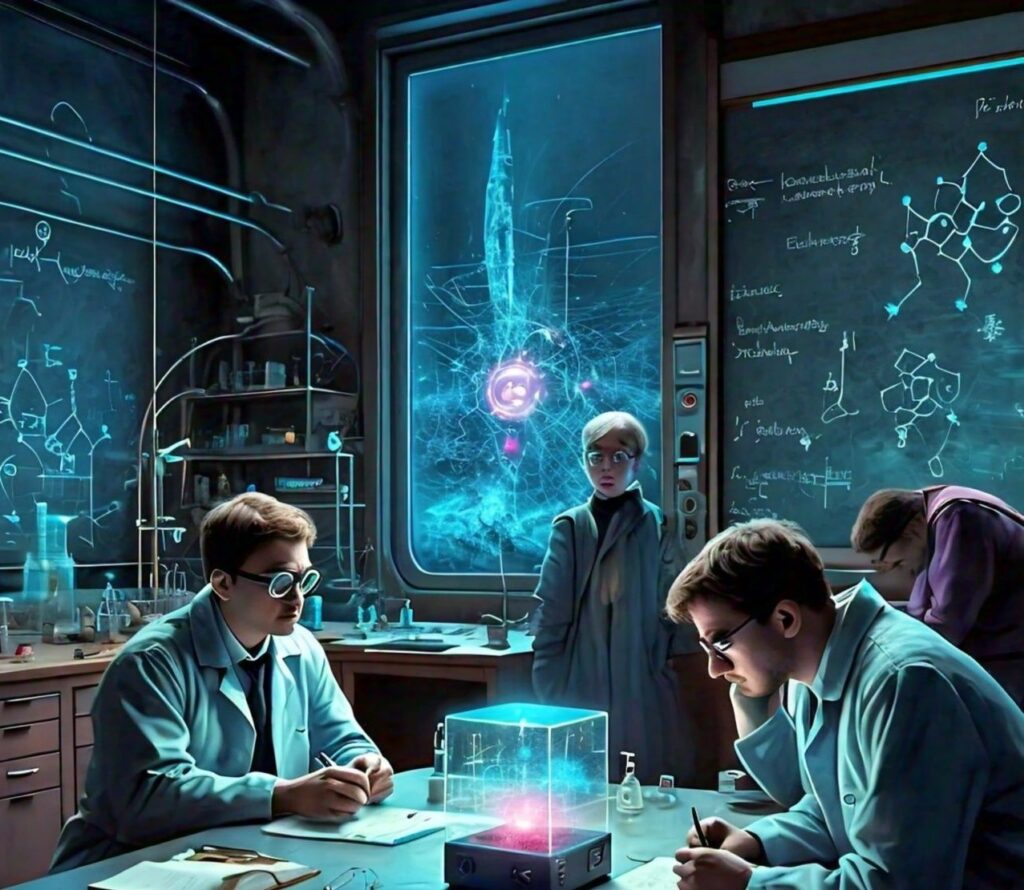A contentious biocentrism theory holds that consciousness and life are the universe’s central concepts. Supporters of this theory contend that life, not the universe, is what creates it. This article aims to dissect and biocentrism debunk by examining its principles, scrutinizing the evidence, and highlighting scientific and philosophical criticisms.
What is Biocentrism?
According to this theory, the universe’s fundamental nature includes life and consciousness. Robert Lanza, a scientist who contends that biological life is the cause of the universe rather than a byproduct, popularized it.
The Principles of Theory
Fundamentally, biocentrism is based on two main ideas:
- The theory that life created the universe holds that without life, the universe could not have occurred because life is required for observation, which is how the universe came into being.
- The idea that consciousness is a fundamental force that shapes reality rather than merely a brain creation is held by biocentrists.

Origins and Evolution
Its idea is not wholly original. It incorporates concepts from contemporary quantum theory as well as old philosophies. But the theory gained prominence thanks to Robert Lanza’s 2007 book “Biocentrism: How Life and Consciousness Are the Keys to Understanding the True Nature of the Universe.”
Supporting Facts for Biocentrism
Supporters of it frequently point to selective scientific interpretations and philosophical arguments. They contend that a life-centered approach provides a more thorough understanding, arguing that conventional physics is unable to fully explain the mysteries of the cosmos.
Scientific Critiques
Lack of Empirical Evidence: One of the primary criticisms is that biocentrism lacks empirical evidence. It does not provide experimental validation or measurable predictions, in contrast to accepted scientific theories.
Misinterpretation of Quantum Mechanics: In order to bolster their arguments, biocentrists frequently misunderstand quantum mechanics, especially the observer effect. Mainstream scientists counter that quantum theory does not support these interpretations and that they are flawed.
Philosophical Critiques of Biocentrism
Logical Fallacies: Begging the question and circular reasoning are two examples of logical fallacies that biocentrism is frequently accused of committing. It hypothesizes that life created the universe, which is what it aims to prove.
Anthropocentric Bias: According to detractors, biocentrism is fundamentally anthropocentric and subjective because it places human consciousness at the center of reality.
Biocentrism vs. Traditional Physics
It is in direct opposition to conventional physics. While established physics functions under the assumption that the universe existed long before life emerged, it implies that the universe is dependent on life.
The Role of Consciousness in the Universe
Consciousness remains a largely enigmatic phenomenon in terms of science. Mainstream science sees consciousness as an emergent characteristic of intricate biological processes, while biocentrism elevates consciousness to a cosmic role.
Quantum Mechanics and Biocentrism
Quantum mechanics ideas are frequently misapplied by biocentrists to support their theories. They point to the observer effect, for example, as proof that consciousness affects reality. It is not the case that consciousness creates reality, though; quantum mechanics merely demonstrates that particles exist in probabilistic states until they are measured.

Life and the Universe: A Biocentric View
It asserts that life is what gives rise to the universe. This opinion is unfounded in science and is speculative. The majority of scientists think that rather than creating the universe’s conditions, life emerged from those that already existed.
Case Studies and Experiments
To bolster their assertions, they frequently cite a variety of research and experiments. On the other hand, a thorough examination typically exposes methodological errors or misunderstandings. For instance, a large number of reported experiments are anecdotal or improperly fail to isolate variables.
Public Perception and Media Influence
Sensationalism in the media has contributed to the rise in popularity of biocentrism. It plays on the human longing for a unique place in the universe, a desire that is often exaggerated without rigorous scientific examination in popular science publications and documentaries.
Ethical and Environmental Implications
It also touches on environmental ethics, implying that a greater understanding of life’s primary role can result in improved environmental stewardship. Opponents counter that ecological science, not biocentric philosophy, should be the foundation of effective environmentalism and that this viewpoint is more romantic than realistic.
Biocentrism debunked?
Although a lot of people find biocentrism appealing, it is founded on false claims and misinterpretations of scientific principles. The universe does not originate from life or consciousness; rather, it exists independently of them, according to both current empirical data and theoretical understanding. The theory is not totally refuted but is generally considered implausible because it has not produced testable predictions, an essential component of scientific theories. One of the main problems with quantum mechanics is the incorrect understanding of the observer effect, which describes any interaction between quantum particles and their surroundings without the need for a conscious observer.
Furthermore, theoretical physics and cosmology backed by empirical evidence like cosmic background radiation demonstrate that the universe existed for billions of years before conscious life emerged. Biocentrism tends to add needless complexity to our understanding of the universe by ignoring Occam’s Razor and the second law of thermodynamics. Even though life and consciousness are important and complicated phenomena, what is known about science today points to them as emergent characteristics of the universe rather than its primary creators.
For more, read: BaddieHub
FAQs
1. What is the main idea of biocentrism?
In contrast to the idea that life is a byproduct of the universe, biocentrism asserts that life and consciousness are essential to the nature of the cosmos.
2. Who popularized biocentrism?
Scientist Robert Lanza’s book “Biocentrism: How Life and Consciousness Are the Keys to Understanding the True Nature of the Universe” helped to popularize the theory.
3. Why is biocentrism criticized by scientists?
Scientists fault biocentrism for its logical fallacies, misapplication of quantum mechanics, and dearth of empirical support.
4. How does biocentrism misinterpret quantum mechanics?
Since mainstream scientific interpretations do not support the idea that consciousness creates reality, biocentrism misinterprets the observer effect in quantum mechanics.
5. What are the ethical implications of biocentrism?
The idea that acknowledging the primary role of life can enhance environmental stewardship is known as biocentrism, and it has been connected to environmental ethics. Critics counter that this strategy is more theoretical than practical.
Conclusion
Although fascinating, biocentrism cannot stand up to close philosophical or scientific examination. It misinterprets quantum mechanics to bolster its claims, and it is founded more on theoretical concepts than actual data. Although consciousness is mysterious, it does not seem to shape reality in the way that biocentrism suggests. The universe, as understood by mainstream science, existed long before life emerged.

